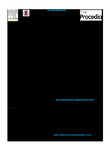Willingness Impact to the PAR Optimisation of R-users Community using EMS
| dc.contributor.author | Yaseen, Y | |
| dc.contributor.author | Ghita, B | |
| dc.date.accessioned | 2021-09-21T10:27:48Z | |
| dc.date.issued | 2019-01-18 | |
| dc.identifier.issn | 1876-6102 | |
| dc.identifier.uri | http://hdl.handle.net/10026.1/17890 | |
| dc.description.abstract |
The optimisation of residential users' power usage is measured by Peak-to-Average (PAR) ratio. Higher PAR leads to increase in the cost for both power suppliers and residential users. Suppliers use expensive resources during these peaks, in turn, the residential users will pay more during these times even for the same amount per kW/h. The aim of this study is to investigate the use of an energy management algorithm within an Energy Management System (EMS) to optimise power consumption and to reduce the overall PAR for a community of users. Beyond the group optimisation, the algorithm takes into account the heterogeneous nature of the community by introducing individual household values of willingness to save power and have the energy managed. In conjunction with the concept of community energy management and willingness, the paper also highlights the importance of incentives for power load optimisation to each user. The proposed algorithm is tested on 15 R-users load profiles, selected based on criteria such as house size, temperature level, by measuring the load of each individual user profile during a 24-hour cycle with a 10-minute resolution. The results show that the algorithm provides a 22.66% reduction of the PAR was 22.66% in a multi-user scenario. Other aspects that could influence the PAR reduction are measured, such as the impact of PAR optimisation by individual R-users without considering the community and the impact of different R-users willingness to use the proposed EMS. This indicates that the effective proposed EMS optimisation is significantly accepted at the point of applying it in single and multi-users scenarios in spite of the variance accepted level of these R-users being considered. | |
| dc.format.extent | 315-320 | |
| dc.language.iso | en | |
| dc.publisher | Elsevier | |
| dc.subject | demand-side management | |
| dc.subject | peak-to-average ratio | |
| dc.subject | Smart Community | |
| dc.subject | Energy communities | |
| dc.title | Willingness Impact to the PAR Optimisation of R-users Community using EMS | |
| dc.type | conference | |
| dc.type | Proceedings Paper | |
| plymouth.author-url | https://www.webofscience.com/api/gateway?GWVersion=2&SrcApp=PARTNER_APP&SrcAuth=LinksAMR&KeyUT=WOS:000470995300056&DestLinkType=FullRecord&DestApp=ALL_WOS&UsrCustomerID=11bb513d99f797142bcfeffcc58ea008 | |
| plymouth.volume | 156 | |
| plymouth.conference-name | 5th International Conference on Power and Energy Systems Engineering (CPESE 2018) | |
| plymouth.publication-status | Published | |
| plymouth.journal | Energy Procedia | |
| dc.identifier.doi | 10.1016/j.egypro.2018.11.148 | |
| plymouth.organisational-group | /Plymouth | |
| plymouth.organisational-group | /Plymouth/Faculty of Science and Engineering | |
| plymouth.organisational-group | /Plymouth/Faculty of Science and Engineering/School of Engineering, Computing and Mathematics | |
| plymouth.organisational-group | /Plymouth/REF 2021 Researchers by UoA | |
| plymouth.organisational-group | /Plymouth/REF 2021 Researchers by UoA/UoA11 Computer Science and Informatics | |
| plymouth.organisational-group | /Plymouth/Users by role | |
| plymouth.organisational-group | /Plymouth/Users by role/Academics | |
| dcterms.dateAccepted | 2019-01-18 | |
| dc.rights.embargodate | 2021-9-22 | |
| dc.rights.embargoperiod | Not known | |
| rioxxterms.versionofrecord | 10.1016/j.egypro.2018.11.148 | |
| rioxxterms.licenseref.uri | http://www.rioxx.net/licenses/all-rights-reserved | |
| rioxxterms.licenseref.startdate | 2019-01-18 | |
| rioxxterms.type | Conference Paper/Proceeding/Abstract |


